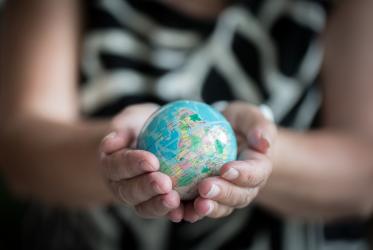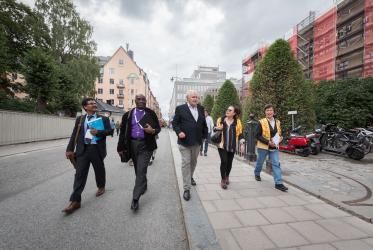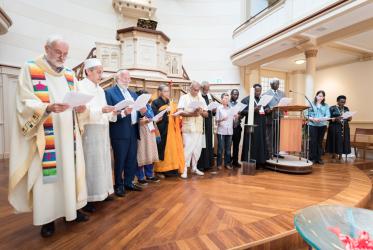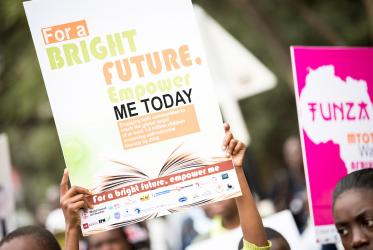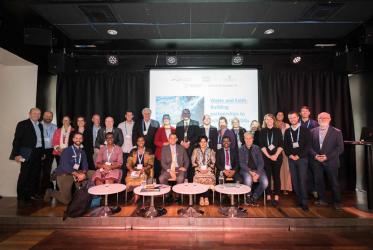Displaying 41 - 60 of 92
Paving the way for ecumenical studies, learning English in Bossey
24 September 2018
Assisi: On the ecumenical pilgrimage into a more sustainable future
03 September 2018
Faith and Water: Translating words into action
30 August 2018
#WCC70: Nathan Söderblom, ecumenical pioneer
29 August 2018
What difference does dressing in black make?
02 August 2018
WCC developing toolkit for health-promoting churches
02 August 2018
Working toward an AIDS-free generation
26 July 2018
Building bridges of faith in the HIV response
25 July 2018
Building Bridges in the global HIV response
25 July 2018
Emily Welty: tide of hope for a world free from nuclear weapons
19 September 2017
"We have our work cut out for us"
10 August 2017
WCC students study what makes a peace communicator
18 July 2017

